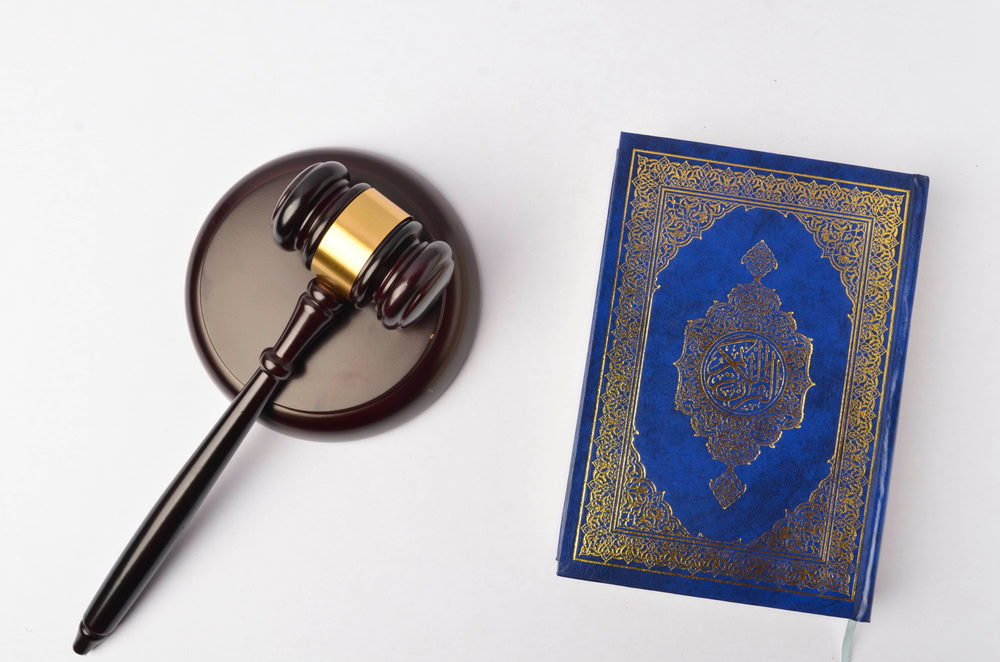Does the Shafi‘i School Hold That A Man Can Marry His Illegitimate Biological Daughter?
Shafi'i Fiqh
Answered by Shaykh Irshaad Sedick
Question
What does the Shafi’i School say about a man marrying his illegitimate biological daughter? I found an absurd fatwa in Tuhfat al-Muhtaj. It says a father can marry his illegitimate daughter. It’s makruh but permissible. How can the Shafi‘i School give a ridiculous fatwa like that? I just find it hard to believe. It’s a great shame for us. Can you clarify this fatwa?
Answer
In the Name of Allah, the Most Merciful and Compassionate. May Allah alleviate our difficulties and guide us to what pleases Him. Amin.
Islam unequivocally prohibits any lewd, obscene, incestuous, and lascivious behaviour. The only lawful fulfilment of one’s carnal desire is through lawful marriage. There is no disagreement about this. While there is a theoretical principle to clarify, no scholar in Islam would marry a man to his daughter, and Allah knows best.
The Shafi’i School is strict about building any form of legitimacy upon the heinous crimes of fornication and adultery. This foundational principle leads to the School’s perspective that a child born from such acts does not legally qualify as one’s offspring in the eyes of Sacred Law.
This theoretical rule, however, should not be understood as a call to action. Still, as a means of emphasising the detested nature of Zina (fornication and adultery), and Allah knows best.
The Shafi’i School and the Illegitimate Daughter
The official position of the Shafi’i School is that a girl born out of wedlock is not a daughter and marriage to her is permissible but disliked. [Nawawi, Minhaj Al-Talibin & Ibn Hajar, Tuhfa Al-Muhtaj 2/299]
To claim that Imam Shafi’i said it is permissible to marry one’s ‘daughter’ misrepresents the Imam’s opinion. Other scholars who wrote on this issue treated Imam Shafi’i and his opinion with a more mature and academic approach than what circulates in some contemporary discourses on this topic and reflected in the tone of your question.
This interpretation does not suggest an outright endorsement of such marriages but reflects a deeper legalistic distinction that separates biological connections from legal affiliations under Islamic law.
Commentary by Traditional Scholars
For example, in Sharh Mukhtasar al-Rawd 3/434, Tufi mentioned this as an example of Qiyas Al-Shabah. He pointed out that from a biological angle, she is a daughter. But from where the Sacred Law stands, she is not: she does not inherit, nor does he inherit from her; he is punished for accusing her of being unchaste, his hand is cut off if he steals from her, and he is executed if he takes her life.
Tufi says that “we” [i.e., the Hanabila] considered the biological factor when ruling on marriage with her, considering it unlawful. Imam Shafi’i considered that in all other cases, the Sacred Law negates paternalistic rights, and therefore, she is likewise, in this case, not his ‘daughter’ according to the Law. In his Muhalla [8/334], Ibn Hazm mentioned no difference of opinion amongst the scholars on the suspension of these rights, except for tahrim (being unmarriageable for another).
How To Understand The Anomalous Shafi‘i Ruling
With that, the scholars of the Shafi’i School differed on how to understand Imam Shafi’i on this particular point. Some of them considered that a girl born out of wedlock was ruled lawful as there is no marital bed she may be ascribed to, and it is dubious as to who her father is. This position is alluded to in the commentaries on the Minhaj.
In Al-Hawi Al-Kabir 11/393, Mawardi related from Abu Ishaq al-Marwazi that it is permissible as her being from him is only a mere possibility. However, his marrying her would be unlawful if that were a defiantly confirmed fact. Marwazi gives the example of a man and woman being imprisoned together from the time of their intercourse until the child is born. He says if a child came from such a situation, it would be unlawful.
After this citation, Mawardi cited another understanding from Abu Ishaq al-Marwazi’s student, Qadi Abu Hamid. According to him, Imam Shafi’i ruled it was disliked because of the differences of opinion on the matter [khurujan min al-khilaf]. But otherwise, she is not his daughter, so she is not unlawful for him.
The reasons Mawardi cited for this ruling, those supporting Imam Shafi’s application of qiyas al-shabah, are the same as cited above. The relied-upon (rajih) view in the School, at the hands of Nawawi and Rafi’i, and Shaykh Al-Islam’s students conform with Qadi Abu Hamid on this particular issue. [Khan, Shafi’i Fiqh]
I pray that this answer benefits and that Allah knows best.
[Shaykh] Irshaad Sedick
Checked and Approved by Shaykh Faraz Rabbani
Shaykh Irshaad Sedick was raised in South Africa in a traditional Muslim family. He graduated from Dar al-Ulum al-Arabiyyah al-Islamiyyah in Strand, Western Cape, under the guidance of the late world-renowned scholar, Shaykh Taha Karaan.
Shaykh Irshaad received Ijaza from many luminaries of the Islamic world, including Shaykh Taha Karaan, Mawlana Yusuf Karaan, and Mawlana Abdul Hafeez Makki, among others.
He is the author of the text “The Musnad of Ahmad ibn Hanbal: A Hujjah or not?” He has served as the Director of the Discover Islam Centre and Al Jeem Foundation. For the last five years till present, he has served as the Khatib of Masjid Ar-Rashideen, Mowbray, Cape Town.
Shaykh Irshaad has thirteen years of teaching experience at some of the leading Islamic institutes in Cape Town). He is currently building an Islamic online learning and media platform called ‘Isnad Academy’ and pursuing his Master’s degree in the study of Islam at the University of Johannesburg. He has a keen interest in healthy living and fitness.
